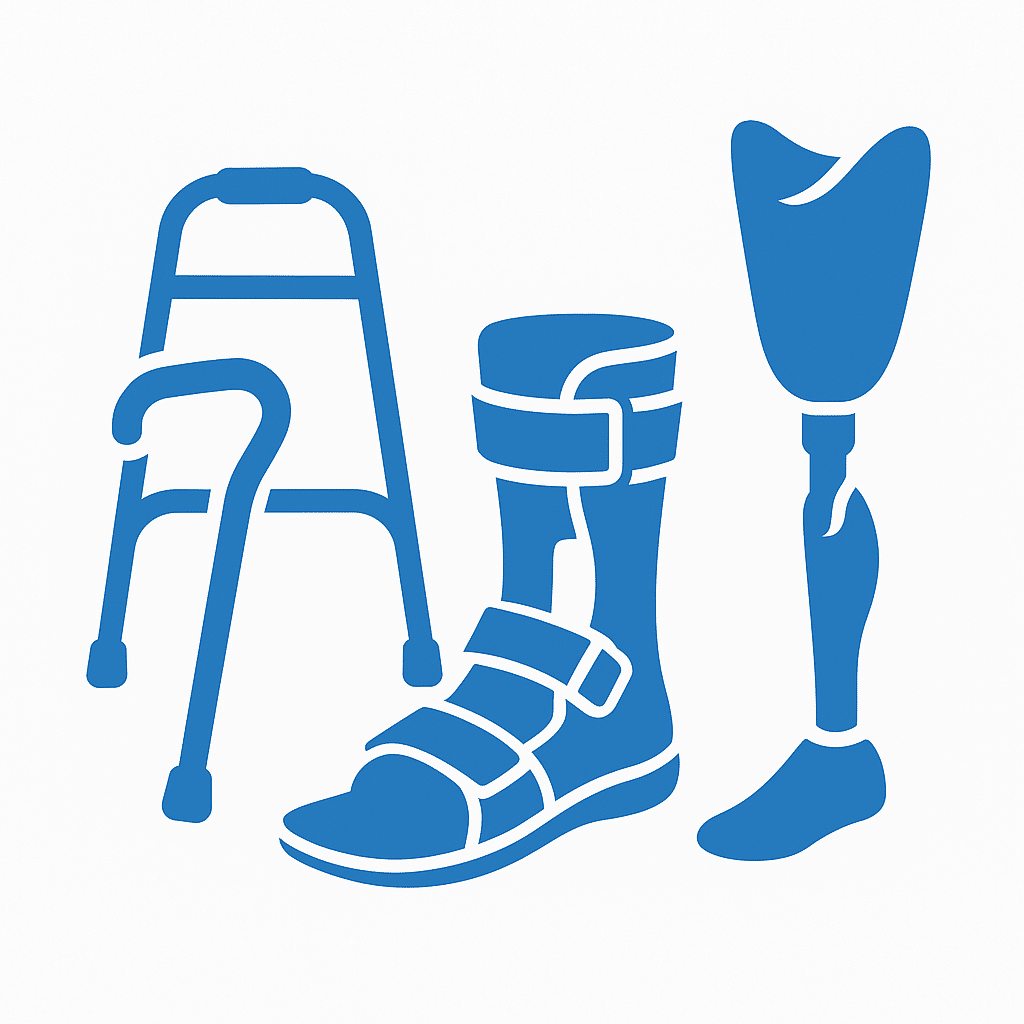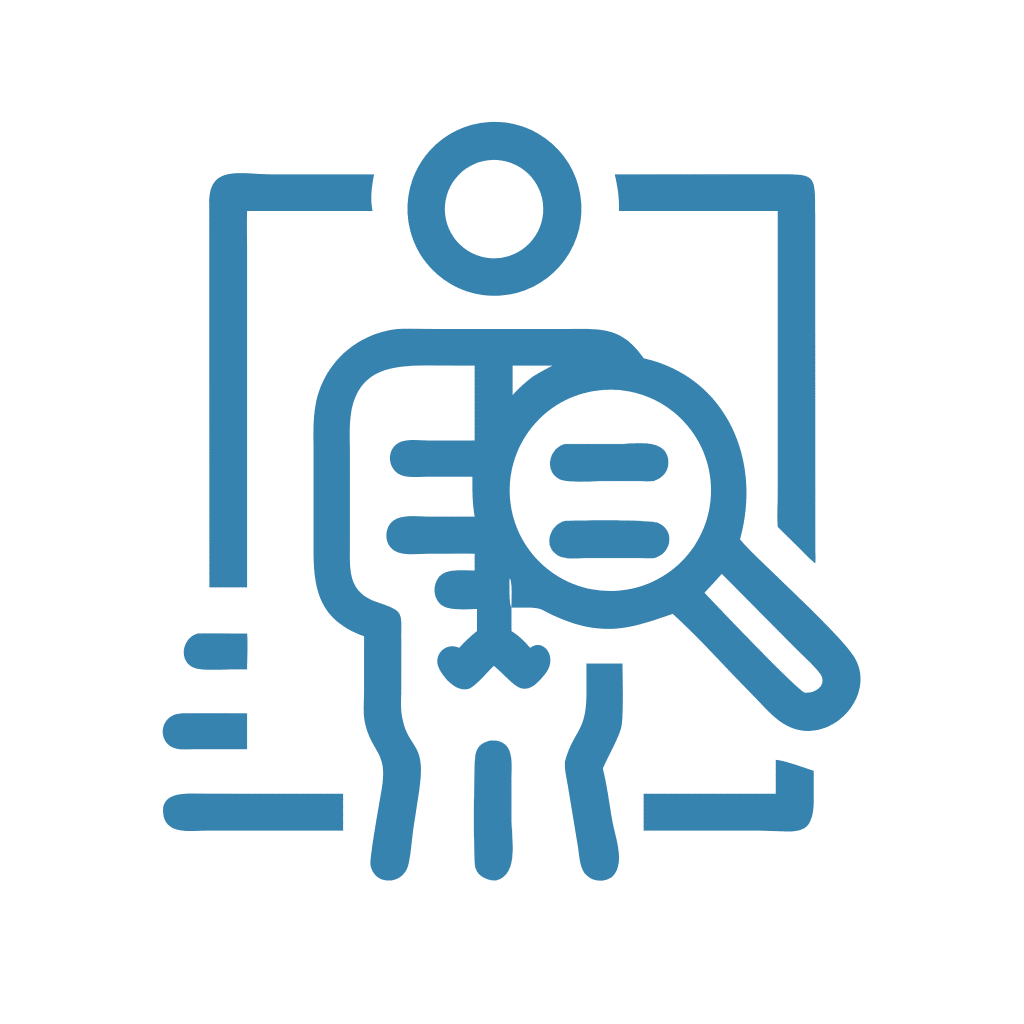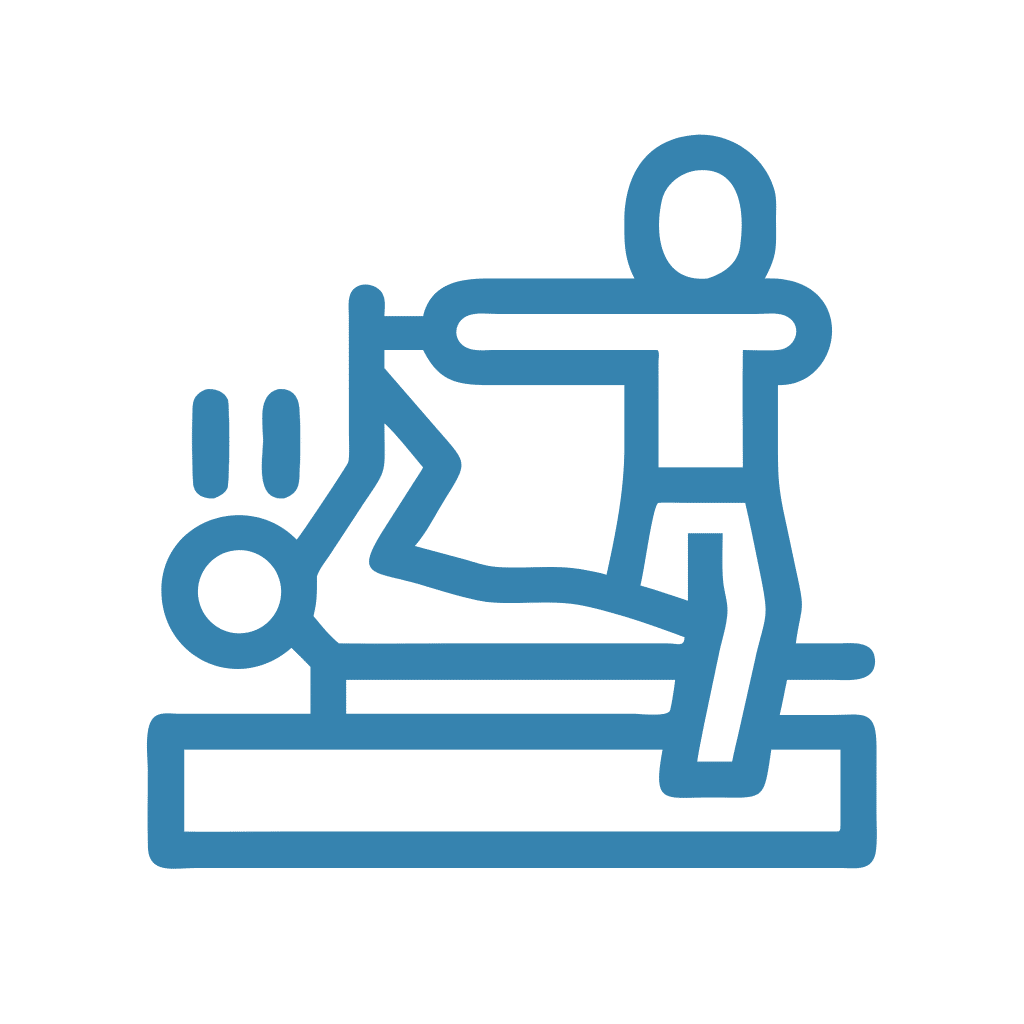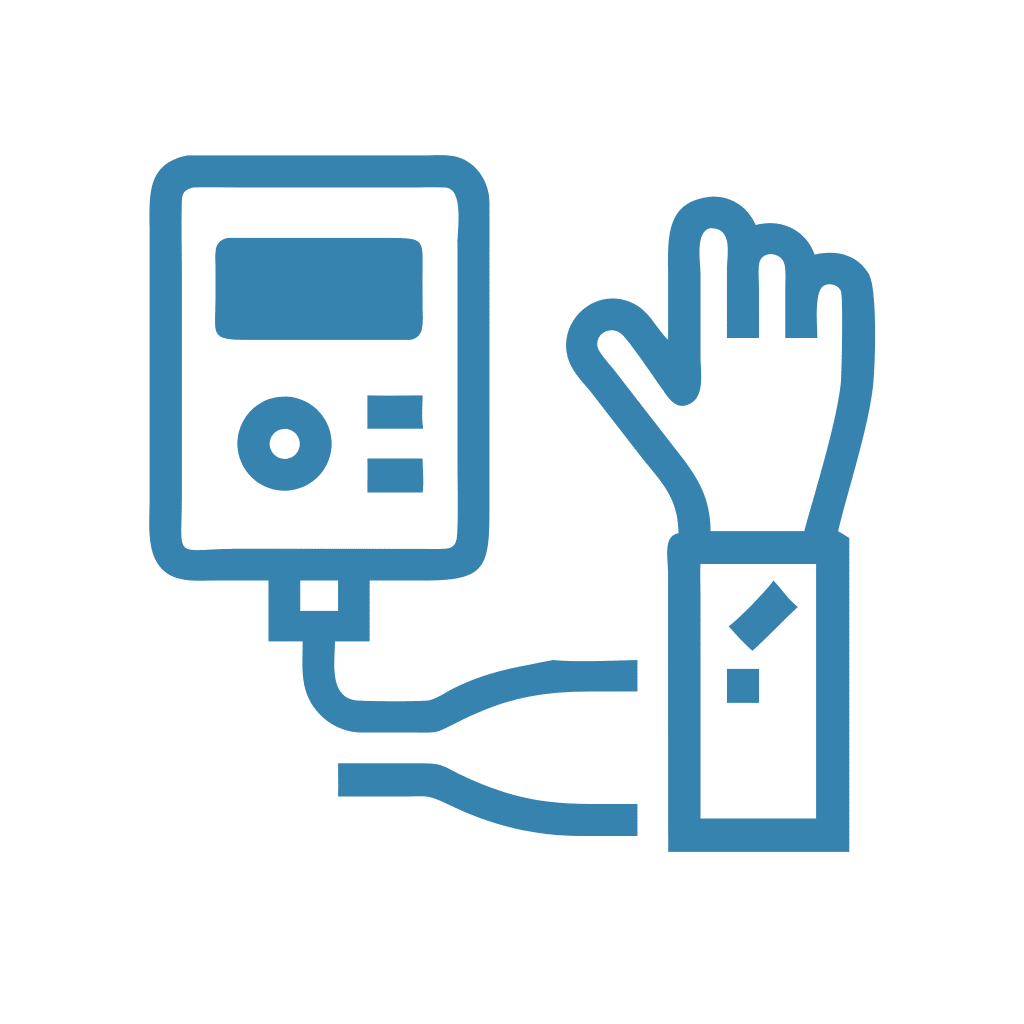Prescription of Orthotics, Prosthetics, and Durable Medical Equipment (DME)
- Home
- Services Details

Prescription of Orthotics, Prosthetics, and Durable Medical Equipment (DME)
Based on your condition, we may prescribe custom or prefabricated orthotics (e.g., AFOs, wrist splints), prosthetics, or mobility aids (e.g., walkers, canes, braces).
We assess functional needs and ensure the prescribed equipment supports rehabilitation, relieves pain, improves gait, and enhances independence.
Proper DME use can prevent further injury and improve quality of life, particularly in neurological or orthopedic conditions.
Orthotics, Prosthetics & Durable Medical Equipment (DME)
At South Florida MSK Rehab, we believe that healing should focus on helping people return to their everyday lives without relying on overly invasive procedures. That’s why our experts can help you obtain the right orthotics, prosthetics, and durable medical equipment to enhance your mobility and improve your daily life.
Advanced Solutions in “Non-Surgical Orthopedics” Miami
Our approach to “non-surgical orthopedics” focuses on finding practical solutions that work for each patient. We ensure that every item aids in recovery without the need for surgery. For example, we offer bespoke orthotics that correct alignment and braces and supports that help preserve and mend joints.
Personalized Prosthetic & Orthotic Care
No two patients’ journeys are the same. Before providing you with prostheses or orthotics, our staff assesses your lifestyle, health, and mobility goals. The result is comfort, better movement, and a new sense of confidence in everyday tasks.
Durable Medical Equipment for Better Living
Our durable medical equipment, such as walkers, wheelchairs, and other specialized supports, can help you for a long time. Patients benefit from high-quality technologies that enable them to be more independent and experience less pain.
Take the Next Step
Find out how sophisticated DME and expert support in “non-surgical orthopedics” can help you get your strength and mobility back. Contact South Florida MSK Rehab today to schedule a consultation.
PM&R is a medical specialty focused on enhancing and restoring functional ability and quality of life to people with physical impairments or disabilities. Physiatrists treat a wide range of conditions affecting the brain, spinal cord, nerves, bones, joints, ligaments, muscles, and tendons.
A physiatrist is a medical doctor who specializes in PM&R. They diagnose and treat conditions that affect movement and function, helping patients regain independence—without performing surgery.
No. Physiatrists do not perform surgery. They focus on non-surgical treatments like physical therapy, medications, ultrasound-guided injections, and rehabilitation strategies.
Physiatrists treat a broad spectrum of conditions including spinal cord injuries, stroke, traumatic brain injuries, amputations, chronic pain, musculoskeletal injuries, sports injuries, and nerve disorders like carpal tunnel syndrome or sciatica.
A physiatrist is a medical doctor who diagnoses and designs treatment plans. A physical therapist is a licensed healthcare professional who carries out those treatment plans through exercise, manual therapy, and other interventions.
Treatments may include physical and occupational therapy referrals, speech therapy coordination, pain management, bracing and orthotics, medications, ultrasound-guided injections, EMG/NCS studies, and assistive device prescriptions.
It depends on your insurance. Some insurance plans require a referral from a primary care doctor, while others allow direct access.
The physiatrist will review your medical history, perform a physical exam, and may order imaging or other diagnostic tests. Then, they’ll create a personalized treatment plan based on your needs and goals.
It varies based on your diagnosis, severity of symptoms, and response to therapy. Some people need a few weeks; others may benefit from long-term follow-up and gradual progress tracking.
Physiatrists work in hospitals, outpatient clinics, rehabilitation centers, long-term care facilities, and private practices.
Book an Appointment
Start feeling better today—schedule your first visit at South Florida Musculoskeletal and Rehab in Miami Shores. We accept most major insurances and our bilingual team is here to help.
Comprehensive Care for Pain, Weakness, and Numbness
We provide a full range of services to address pain, weakness, and numbness. Our clinic is equipped with cutting-edge technology and staffed by experts dedicated to your recovery, proudly serving patients from Miami Shores and nearby areas.

Comprehensive Evaluations
Thorough assessments to diagnose musculoskeletal and neurological conditions accurately.

Physical Therapy Coordination
Tailored rehab plans focused on restoring movement, reducing pain, and strengthening the body.

Medication
Management
Safe, evidence-based prescriptions for managing inflammation, nerve dysfunction, and pain.

Diagnostic Imaging Coordination
We order and review X-rays, MRIs, CTs, and other studies to guide precise treatments.

EMG & Nerve Conduction Studies
On-site nerve and muscle testing in Miami Shores for accurate diagnosis and treatment guidance
Ultrasound-Guided Injections
Precise injections for joint, tendon, and nerve issues using advanced ultrasound guidance.

